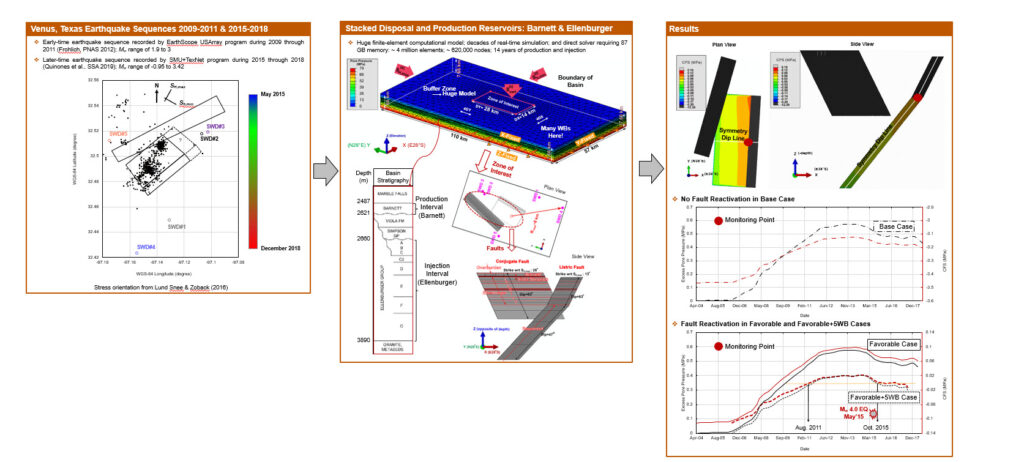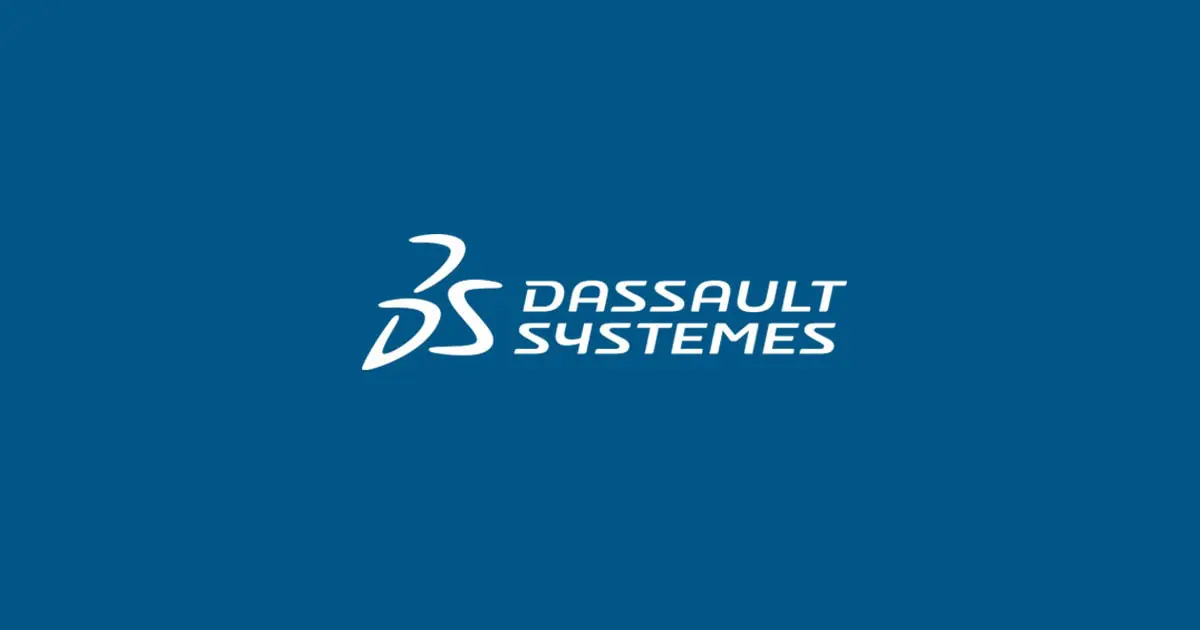Registration is now open for the 3DEXPERIENCE Modeling and Simulation Virtual Conference (ModSim) on November 17-18, 2020. This global conference will inspire users to design and innovate the next generation of products by offering learning opportunities through user presentations on industry applications, product and technology updates. Below is an interview with one of the academic speakers, Mahdi Haddad, giving insight on what he will present at the conference.
What is the title of your presentation?
Title: Fault reactivation in response to saltwater disposal and hydrocarbon production for the Venus, TX, Mw 4.0 earthquake sequence
Highlights:
- We conducted fully coupled 3D poroelastic simulations in Abaqus for a site-specific induced seismicity case in Venus, Texas.
- The simulation results demonstrate that Mw4.0 fault reactivation in Venus, Texas requires the evaluation of the effect of a wide range of in-situ stress azimuth, fault orientation, and the Byerlee’s friction coefficient, beyond the best geological estimates of these parameters.
- To achieve fault reactivation in the basement as observed in the study area, we increased the basement fault dip by 5° and the maximum horizontal stress azimuth by 10°, both within the uncertainty space of these input parameters, and lowered the friction coefficient of the fault in the basement down to 0.35.

Please describe why you chose this topic for your project.
The establishment of spatiotemporal correlations between surface-felt earthquakes and hydraulic fracturing operations is a complicated scientific problem due to various causative mechanisms such as far-reaching poroelastic effects and the direct pore-pressure buildup in complex geological systems. Understanding these causative mechanisms for site-specific fault reactivation and subsequent decisions to change surface operations result in safe and reliable hydrocarbon production.
What are three main takeaways the ModSim audience can expect at the conclusion of your presentation?
- The fully coupled pore-pressure-stress analysis equipped by parallel processing in Abaqus can serve as a practical tool for subsurface formation studies.
- High fidelity poroelastic solutions in Abaqus demonstrate the effect of hydrocarbon production and saltwater disposal on fault reactivation within granitic basements.
- To address the uncertainties in the hydrogeological description of subsurface formations, access to supercomputing facilities (e.g., Texas Advanced Computing Center) is needed considering the high computational demand of the direct solver in Abaqus for field-scale simulations.
What do you see are the benefits of someone listening to your presentation at ModSim?
Computational simulations can predict surface-felt earthquakes due to hydrocarbon production and saltwater disposal. These simulations help lower the public concern about oil and gas operations as they can show the occurrence time and persistence of seismic events spatiotemporally and exclusively correlated with surface operations.
What were the advantages of using simulation in your project?
Simulations lead to clear understanding about complex and nonlinear subsurface phenomena that are hardly possible to analyze using analytical techniques or field monitoring due to the shortcomings in poroelastic analytical solutions and the expensive acquisition of subsurface data in deep formations.
Why did you choose SIMULIA over other simulation products?
I have been working with Abaqus for modeling hydraulic fracture propagation and fault reactivation during my PhD studies and postdoctoral research, in the past seven years. Beside this long-term experience in working with Abaqus, the advantages of Abaqus in providing scientific solutions for complex, nonlinear rock deformations have motivated me to continue working with Abaqus.
Do you feel that learning simulation skills in University will provide you with an advantage in your career? Please explain.
Academic institutions definitely provide a pleasant environment for trying and learning new procedures for the simulation of complex problems knowing that this learning process involves numerous failed simulation attempts at the beginning. This is in contrast to too strict timelines of industry projects for failed simulation attempts. Also, compared to industry affiliates, academic researchers can acquire Abaqus research licenses at a substantially lower cost.
 Mahdi Haddad is a postdoctoral fellow at the Bureau of Economic Geology at The University of Texas at Austin, where he conducts research on geomechanics of induced seismicity through the TexNet-CISR project in collaboration with Dr. Peter Eichhubl. Previously, Mahdi worked as a research geophysics intern at Total E&P Research and Technology USA, where he developed a method to improve the interpretation of microseismicity through 3D finite-element fracture-intersection models. His SPEJ publication on this topic awarded him the 2018 Cedric K. Ferguson Medal from SPE International. Haddad has authored 21 peer-reviewed journal articles and conference papers on induced seismicity, multiple-stage hydraulic-fracture design, refracturing optimization, stimulated naturally fractured reservoir simulation, and smoothed particle hydrodynamics. Mahdi is an active member of SPE and ARMA, and he was inducted as an ARMA Future Leader in 2019. Mahdi holds BS degrees in mechanical and petroleum engineering and an MS in mechanical engineering/energy conversion from Sharif University of Technology, Iran, as well as a PhD in petroleum engineering from The University of Texas at Austin.
Mahdi Haddad is a postdoctoral fellow at the Bureau of Economic Geology at The University of Texas at Austin, where he conducts research on geomechanics of induced seismicity through the TexNet-CISR project in collaboration with Dr. Peter Eichhubl. Previously, Mahdi worked as a research geophysics intern at Total E&P Research and Technology USA, where he developed a method to improve the interpretation of microseismicity through 3D finite-element fracture-intersection models. His SPEJ publication on this topic awarded him the 2018 Cedric K. Ferguson Medal from SPE International. Haddad has authored 21 peer-reviewed journal articles and conference papers on induced seismicity, multiple-stage hydraulic-fracture design, refracturing optimization, stimulated naturally fractured reservoir simulation, and smoothed particle hydrodynamics. Mahdi is an active member of SPE and ARMA, and he was inducted as an ARMA Future Leader in 2019. Mahdi holds BS degrees in mechanical and petroleum engineering and an MS in mechanical engineering/energy conversion from Sharif University of Technology, Iran, as well as a PhD in petroleum engineering from The University of Texas at Austin.
SIMULIA offers an advanced simulation product portfolio, including Abaqus, Isight, fe-safe, Tosca, Simpoe-Mold, SIMPACK, CST Studio Suite, XFlow, PowerFLOW and more. The SIMULIA Learning Community is the place to find the latest resources for SIMULIA software and to collaborate with other users. The key that unlocks the door of innovative thinking and knowledge building, the SIMULIA Learning Community provides you with the tools you need to expand your knowledge, whenever and wherever.

